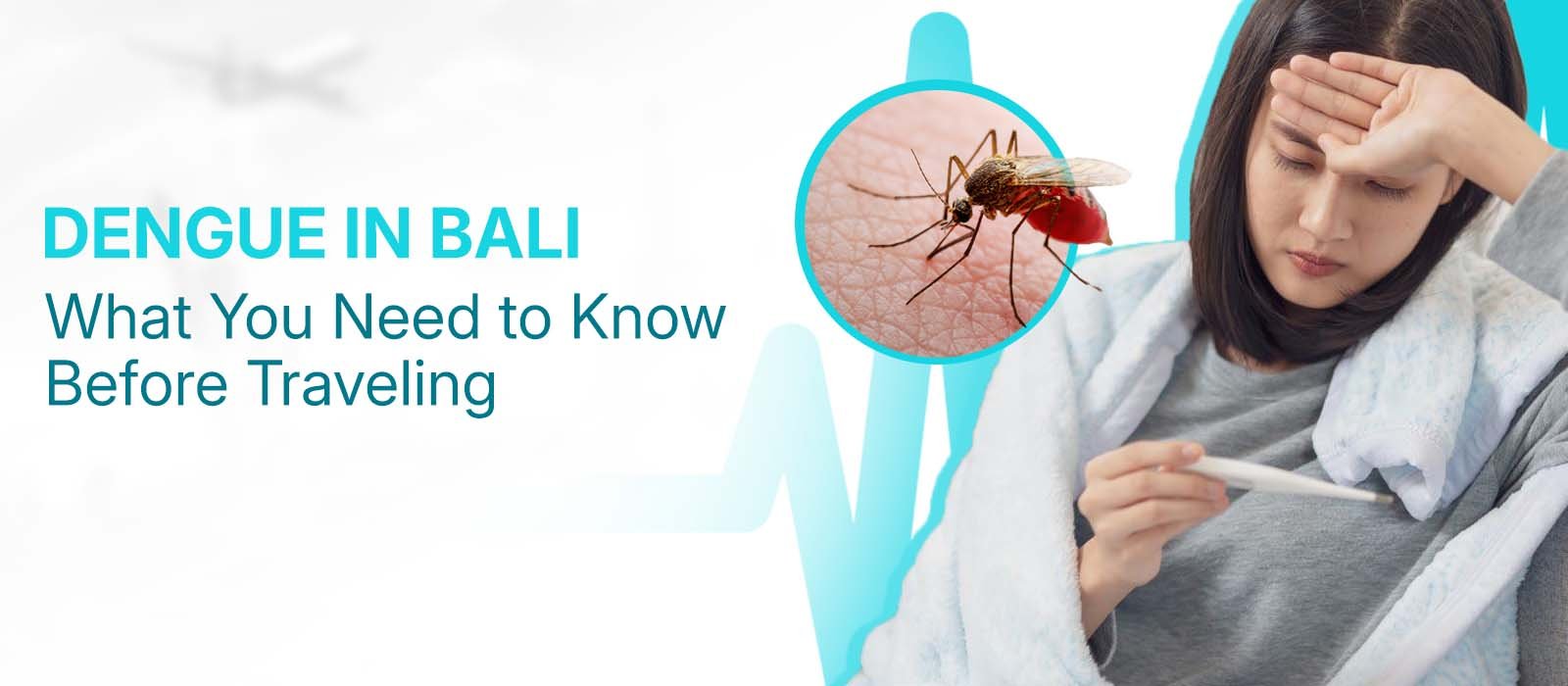
Contents
Dengue in Bali – What You Need to Know Before Traveling
Bali, the Island of the Gods, is a paradise for travelers seeking serene beaches, lush landscapes, and vibrant culture. But under this tropical haven lies an invisible risk: dengue fever. If you’re planning a trip to Bali or are already soaking in its beauty, staying informed about dengue Bali can help ensure your vacation is both enjoyable and safe.
What is Dengue Fever, and Why is Bali a Hotspot?
Dengue fever is a viral illness caused by the dengue virus and spread by Aedes aegypti mosquitoes. These mosquitoes are most active during daylight hours, especially in the early morning and late afternoon. The warm, humid climate of Bali, combined with periodic rains, creates the perfect environment for these mosquitoes to breed and thrive. This makes dengue a persistent concern on the island, particularly during the rainy season, which typically runs from November to March.
Unlike many mosquito-borne diseases, dengue fever isn’t confined to rural or remote areas. In Bali, even urban centers like Denpasar and popular tourist hubs such as Kuta and Ubud have reported cases. The virus doesn’t discriminate—it affects locals and tourists alike.
Recognizing the Dengue Fever Bali Symptoms
Dengue fever bali often starts with flu-like symptoms, which can escalate quickly. Many first-time visitors to Bali mistake the early signs of dengue for regular travel fatigue, but it’s important to know when to take these symptoms seriously. Early warning signs include:
- High fever
- Severe headaches
- Pain behind the eyes
- Joint and muscle pain
- Nausea and vomiting
- Skin rash
- Fatigue and weakness
In severe cases, dengue can progress to more dangerous forms, such as dengue hemorrhagic fever or dengue shock syndrome, both of which require immediate medical attention. These complications may involve bleeding gums, abdominal pain, difficulty breathing, and a sudden drop in blood pressure. The severity underscores the importance of vigilance and early detection.
Don’t Ignore the Signs – Act Fast
If you or someone you know is experiencing these symptoms in Bali, especially after mosquito exposure, seek medical care immediately. Early diagnosis can make all the difference. Visit a trusted clinic like BeWell Bali for professional evaluation and treatment.
How to Stay Safe and Minimize Risks?
While the prospect of contracting dengue in Bali might sound daunting, it’s entirely possible to enjoy your trip safely by taking simple but effective precautions. Mosquito repellents are your first line of defense. Choose one that contains active ingredients like DEET, and reapply it frequently, especially if you’re spending extended time outdoors.
Clothing can also make a difference. Lightweight, long-sleeved shirts and pants not only protect against mosquito bites but also help you stay cool under the tropical sun. Mosquitoes are particularly drawn to dark colors, so opt for lighter shades when packing for your trip.
Another effective way to reduce your risk is by staying in accommodations that prioritize mosquito control. Hotels or villas equipped with air conditioning screened windows, and mosquito nets can drastically cut your exposure to bites. If you’re staying in a more rustic or open-air setting, consider using a portable mosquito net to safeguard your sleeping area.
Read the Article: Mosquito Bites Bali: What Tourists Need to Know in 2025
Dengue Fever Treatment
Despite your best efforts to avoid mosquito bites, contracting the dengue virus is still a possibility while visiting Bali. If you begin experiencing symptoms such as high fever, joint pain, or rash during or after your trip, don’t delay—seek immediate medical attention.
Clinics and hospitals across the island are well-prepared to diagnose and manage dengue. Reputable healthcare providers like BeWell Bali offer comprehensive services, including the dengue test in Bali, which is the first step toward early diagnosis and better outcomes.
Since there’s no antiviral cure for dengue, treatment focuses on managing symptoms. Rest, hydration, and careful monitoring are essential. You can take paracetamol to reduce fever and pain, but avoid aspirin or ibuprofen, as these can increase the risk of internal bleeding—a serious complication of dengue.
For more severe cases, medical professionals may recommend IV therapy to restore lost fluids and support recovery. Early detection through a dengue test can help you avoid complications and return to health faster.
The Role of Awareness and Adaptation
Understanding dengue fever is not just about personal protection—it’s about adapting to the environment you’re in. Bali’s government and local health authorities work tirelessly to raise awareness and reduce mosquito populations, but individual efforts remain vital. Eliminating sources of standing water, such as buckets, plant trays, and uncovered containers, can significantly reduce mosquito breeding grounds.
For travelers, preparation begins even before setting foot on the island. Check your travel insurance policy to ensure it covers medical treatment for conditions like dengue fever. Carry a first-aid kit that includes basic medications, rehydration salts, and a thermometer to monitor fevers. While these steps may seem excessive, they can provide peace of mind during your adventure.
Why Dengue in Bali Shouldn’t Ruin Your Trip
Dengue in Bali is a risk, but it doesn’t have to overshadow your experience. The beauty of Bali is undeniable, and millions of tourists visit the island every year without encountering any health issues. By understanding the risks, recognizing the symptoms, and taking appropriate precautions, you can enjoy the magic of Bali while keeping dengue fever at bay.
The key lies in awareness and preparation. Knowledge is your best defense, and with it, you can confidently explore Bali’s beaches, temples, and vibrant markets. Don’t let the fear of dengue hold you back from experiencing one of the most enchanting destinations on Earth. With a little foresight and care, you can embrace everything Bali has to offer and return home with memories that last a lifetime.

